#François-Eric Gendron
Explore tagged Tumblr posts
Text
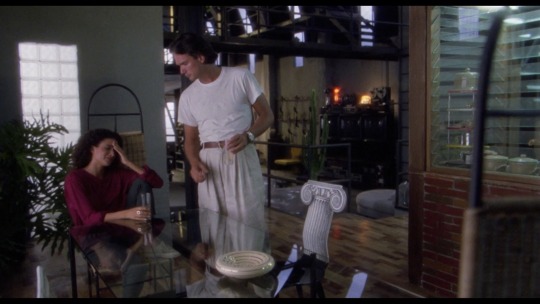
Sotto il vestito niente 2 (1988)
2 notes
·
View notes
Photo

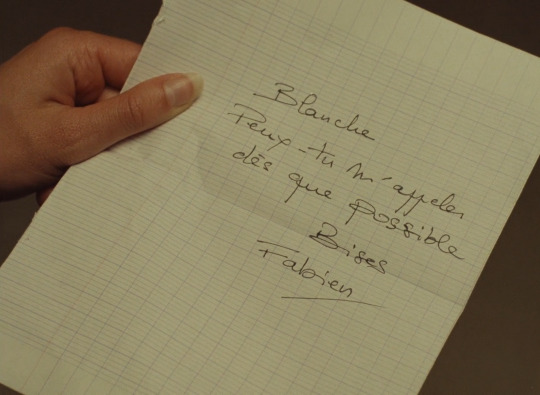

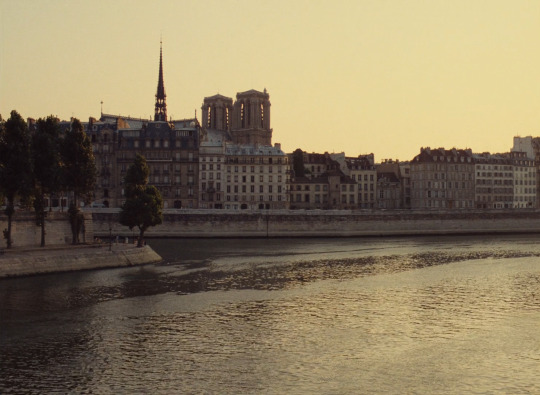

My Girlfriend’s Boyfriend (1987) dir. Éric Rohmer
#my girlfriend's boyfriend#eric rohmer#filmedit#cinematography#aesthetic#emmanuelle chaulet#sophie renoir#anne-laure meury#eric viellard#françois-eric gendron#films#movies#faceless
719 notes
·
View notes
Photo

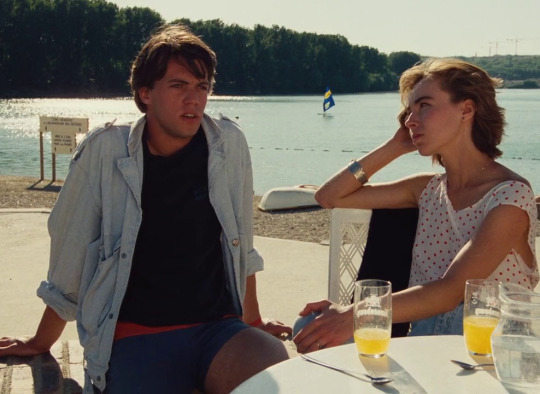

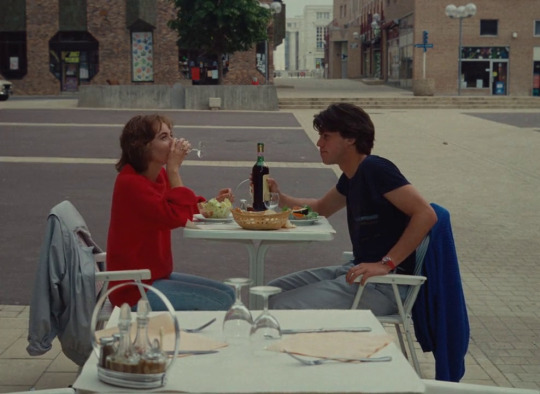

Boyfriends and Girlfriends (1987)
Dir. Eric Rohmer
Language: French
#boyfriends and girlfriends#1987#eric rohmer#french#Emmanuelle Chaulet#Sophie Renoir#Anne-Laure Meury#Eric Viellard#François-Eric Gendron#french cinema#french movie#movie screencaps#french film#french film screencaps#80s cinema#screencaps
37 notes
·
View notes
Photo


L’ami de mon amie (AKA My Girlfriend’s Boyfriend) | Eric Rohmer | 1987
Anne-Laure Meury, François-Eric Gendron
#Sophie Renoir#François-Eric Gendron#Eric Rohmer#Rohmer#L’ami de mon amie#My Girlfriend’s Boyfriend#1987
1K notes
·
View notes
Photo





L’ami de mon amie / Boyfriends and Girlfriends Éric Rohmer. 1987
Bar Terrace Rue des Étangs 95000 Cergy-Pontoise, France See in map
See in imdb
#eric rohmer#l'ami de mon amie#boyfriends and girlfriends#pontoise#cergy#lake#france#terrace#bar#emmanuelle chaulet#sophie renoir#eric viellard#françois-eric gendron#movie#cinema#film#location#google maps#google earth#1987
26 notes
·
View notes
Text
3615 code Père Noël (aka Deadly Games, 1989)
In our recent discussion of Paprika for the Lagniappe podcast, Brandon mentioned that he likes Christmas slashers, and I challenged him to name three (since Black Christmas is a given, and everyone has their own favorite Silent Night, Deadly Night – for Brandon, it’s Initiation). Luckily, streaming service Shudder has an “Unhappy Holidays” selection. There are some perennial favorites in there,…

View On WordPress
#3615 code Père Noël#alain musy#brigitte fossey#christmas#christmas horror#deadly games#dial code santa claus#François-Eric Gendron#home alone#horror#louis ducreaux#mark boomer redmond#patrick floersheim#René Manzor#reviews#santa claus#shudder#slashers
0 notes
Text
Book Recommendations on the French Revolution (the "short" list version)
(For some reason, the original anonymous ask and answer I thought I had saved in my drafts has disappeared? Did I accidentally delete it? Who knows with Tumblr. Anyway, good thing I screenshotted it, I guess.)

Since I am STILL working on my extremely long post series going in depth into recommendations, I guess I should really just answer this ask and give a plain and simple list, as it was requested -_- (Don't worry, the extremely long post series is still going to happen.)
First of all, let’s just say, again (and it really must be insisted on), that most Anglophone historiography is… not very good. There are exceptions, but not many. At least, not enough to satisfy me. Fortunately, some good French books have been translated to English – so that’s great news!
So here are my main recommendations:
Sophie Wahnich’s La liberté ou la mort. Essai sur la Terreur et le terrorisme (2003) which was translated to In Defence of the Terror: Liberty Or Death in the French Revolution with a foreword by Slavoj Zizek in 2012.
This essay basically changed my life, and led me to take the path I have walked since as a historian. Zizek’s foreword is very good in summarizing the ideological oppositions to the French Revolution (until he rambles the way he usually does).
It opens with a quote from Résistant poet René Char which perfectly sets the tone:
“I want never to forget how I was forced to become – for how long? – a monster of justice and intolerance, a narrow-minded simplifier, an arctic character uninterested in anyone who was not in league with him to kill the dogs of hell.”
Keep in mind that when I first read it, in 2003, the very notion of anything like the Charlottesville rally happening was still in the realm of pure fantasy.
Marie-Hélène Huet’s Mourning Glory: The Will of the French Revolution (1997). One of the rare books in my list that was originally written in English (!). I think a lot of it might be available to read via Google Books, but it’s worth buying.
This book is hard to categorize: it talks of historiography and ideology, and it’s overall a fascinating book.
It feels a lot like Sophie Wahnich’s first essay – it was also similarly influential on my research. It inspired a lot of my M.A. thesis. I’ve recently found my book version of it, and this book was annotated like I’ve rarely annotated a book. It was quite impressive.
Dominique Godineau’s Citoyennes Tricoteuses: Les femmes du peuple à Paris pendant la Révolution française (1988) which was translated to The Women of Paris and Their French Revolution (1998).
It’s the best book on women’s history during the French Revolution IMO. I really don’t have much more to say about it: it’s excellent. It talks of working class women, it talks of the conflicts between different women groups, it talks of what happened after Thermidor and the Prairial insurrections, and the women who were arrested. No book has compared to it yet.
Jean-Pierre Gross’s Fair Shares for All: Jacobin Egalitarianism in Practice (1997). You can download it for free via The Charnel House (link opens as pdf).
Another rare book that was originally written in English, and later translated to French, though the author is French! (I think some French authors have picked up that the real battlefield is in Anglophonia…) It’s very important to understand social rights, a founding legacy of the French Revolution.
François Gendron’s essential book on the Thermidorian Reaction: first published in Québec as La jeunesse dorée. Episodes de la Révolution française (1979) (The Gilded Youth. Episodes of the French Revolution). It was then published in France as La jeunesse sous Thermidor (The Youth During Thermidor). As I explained here, its publication history is quite controversial (though it seems no one noticed?). It was thankfully translated to English as The Gilded Youth of Thermidor (1993). However, the English translation follows Pierre Chaunu’s version – which didn’t alter the content per se, but removed the footnotes and has a terribly reactionary foreword – so be careful with that. If anything, that’s a very good example of all the problems in historiography and translations.
Much like Godineau’s book on women, no book can compare. In the case of women’s history during the French Revolution, it’s because most of it is abysmally terrible; in the case of the Thermidorian reaction, it’s because no one talks about it. And it’s not surprising once you start reading about it.
(You might notice that Gendron’s translated book, much like many others, are prohibitively expensive. I do own some of these so if you ever want to read any, send me a message and we’ll work it out!)
Antoine de Baecque’s The Body Politic. Corporeal Metaphor in Revolutionary France, 1770-1800 (1997), which is a translation of Le Corps de l’histoire : Métaphores et politique (1770-1800) (1993). (Here’s the table of contents.) It’s a peculiar book belonging to a peculiar field, and it can be a bit complicated/advanced in the same way most of Sophie Wahnich’s books are, but I still recommend them. See also: La gloire et l’effroi, Sept morts sous la Terreur (1997) and Les éclats du rire : la culture des rieurs aux 18e siècle (2000), but I don’t think either have been translated. Le Corps de l’histoire and La gloire et l’effroi also are nice complements to Marie-Hélène Huet’s book.
If you can read French, I really recommend the five essays reunited in Pour quoi faire la Révolution ? (2012), especially Guillaume Mazeau’s on the Terror (La Terreur, laboratoire de la modernité) – which I might try to eventually translate or at least summarize in English coz it’s really worth it.
The following books are extremely important to understand the historiographical feud and the controversies that surrounded the Bicentennial of the French Revolution in 1989 (and both have been translated to French so that’s cool too):
First, Steven L. Kaplan’s two volumes called Farewell, Revolution: Disputed Legacies (1995) and The Historians’ Feud (1996).
Then, Eric Hobsbawm’s Echoes of the Marseillaise: Two Centuries Look Back on the French Revolution (1990) which gives you the Marxist perspective on the debate. If you want to look for the non-Marxist perspective: look at literally any other book written on the French Revolution and its historiography (I’m not kidding). For example, you can read the introduction by Gwynne Lewis (1999 book edition; 2012 online edition) to Alfred Cobban’s The Social Interpretation of the French Revolution (1964), the founding “revisionist” book.
Again, if you can read French, I recommend Michel Vovelle’s Combats pour la Révolution française (1993) and 1789: L’héritage et la mémoire (2007). I have not read La bataille du Bicentenaire de la Révolution française (2017) but it might recycle parts of the previous two books, so I’d look that up first.
Marxist historiography is near inexistant in Anglophonia, because of reasons best explained in this short historiographical recap on Anglophone historiography and specifically Alfred Cobban (link opens as pdf), but there was Eric Hobsbawm, who wrote a series of very important books on “The Ages of…”:
The Age of Revolution: 1789-1848
The Age of Capital: 1848-1875
The Age of Empire: 1875-1914
The Age of Extremes: 1914-1991
Some of Albert Soboul’s works have been translated as well:
A Short History of the French Revolution, 1789-1799 (1977)
The Sans-Culottes: The Popular Movement and Revolutionary Government, 1793-1794 (1981)
Understanding the French Revolution (1988), which is a collection of various essays translated to English (here’s the table of contents)
While we’re on the subject of classics: I do need to re-read R. R. Palmer’s The Twelve Who Ruled (1941) to see if I still like it, but I believe it’s still positively received? I’ve never actually read C. L. R. James’ The Black Jacobins. Toussaint Louverture and the San Domingo Revolution (1963) but I’m going to rectify that this summer.
That’s a good way to segue into a final part.
Here is a list of books I technically have not read yet (I skimmed through them), but would still recommend because I trust the authors:
Michel Biard and Marisa Linton’s The French Revolution and Its Demons (2021) which was originally published in French as Terreur ! La Révolution française face à ses demons (2020). It looks like an excellent summary of all the controversies surrounding the Terror: Robespierre’s black legend, how the Terror was “invented”, the conflicts between different political factions and clubs, the Vendée, and stats on who actually died by the guillotine (no, there was no “noble purge”). (Here’s the table of contents.)
Peter McPhee wrote several good syntheses, the most recent being Liberty or Death: The French Revolution (2017). Others he wrote: Living the French Revolution, 1789-99 (2006) and A Social History of France, 1789-1914 (1992, reedited in 2004). Why 1914? The 19th century was defined by Hobsbawm (see above) as “the long 19th century” (by contrast with “the short 20th century”), or “the cultural and political 19th century”, which is regarded as lasting from the fall of Napoléon Bonaparte to the First World war.
Eric Hazan’s A People’s History of the French Revolution (2014) and A History of the Barricade (2015), which are translations (Une histoire de la Révolution française, 2012, and La barricade: Histoire d’un objet révolutionnaire, 2013). If you can read French, check out his essay published by La Fabrique: La dynamique de la révolte. Sur des insurrections passes et d’autres à venir (2015).
Just as a final note: this post is the equivalent of four half single-spaced pages in Times New Roman 12 pts. It also took two hours to write and format (and make the side-posts with table of contents) even though most of it is already written in several drafts – i.e. the long post series of in-depth recommendations, so that gives you an idea of why that other series of posts is taking so long to write.
I’m going to go lie down now. -_-
ETA: Corrected some typos and a link that didn't quite go to the right place.
#historiography#frev historiography#sophie wahnich#marie helène huet#antoine de baecque#michel vovelle#michel biard#marisa linton#eric hazan#peter mcphee#c. l. r. james#r. r. palmer#albert soboul#eric hobsbawm#françois gendron#francois gendron#dominique godineau#steven l. kaplan#jean pierre gross#alfred cobban#slavoj žižek#slavoj zizek#this post almost killed me
394 notes
·
View notes
Photo




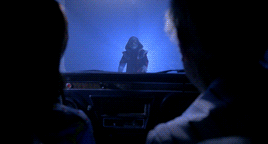
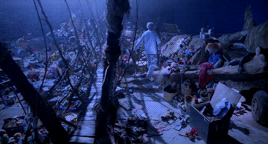
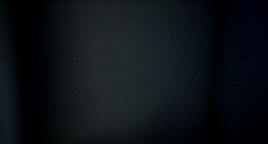
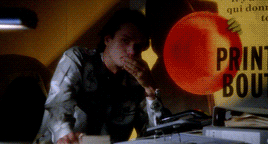


Deadly Games (1989)
#Deadly Games#Dial Code Santa Claus#3615 code Père Noël#René Manzor#horroredit#Alain Lalanne#Patrick Floersheim#Louis Ducreux#François Eric Gendron#My Stuff
97 notes
·
View notes
Photo

#Too Beautiful to Die#Sotto il Vestito Niente 2#eurotrash#1988#Dario Piana#Florence Guérin#Giovanni Tamberi#François-Eric Gendron#VHS
2K notes
·
View notes
Photo

Boyfriends and Girlfriends (1987/Éric Rohmer)
#seen 2017#boyfriends and girlfriends#l'ami de mon amie#Éric rohmer#emmanuelle chaulet#françois-eric gendron
21 notes
·
View notes
Photo

- He’s adorable, but he gets on my nerves! For example, he’s so sweet I can’t lie to him! - You don’t have to. - Sometimes you do. Some things are better left unsaid. Especially little things. If I ever went out with another guy... he’d throw a fit. I’m faithful but it could happen. And it could get serious. With the other guy, I mean. I’d have to choose. But I could only leave Fabien in slow stages. So for a while I’d have to lie when I’d rather tell him outright: “I don’t love you”. - Do you love him now? - I still do. But he’s getting tougher to take. He’s too self-centered. - You say he’s nice. - They can go together. He makes no demands, but he’s got no initiative, either. If he’d really wanted me to go with him Friday, I’d have gone. I wish he’d seen I was faking illness, and gotten mad. With him, all my little games fall flat. He can’t put himself in my place. He’s not considerate. I’m old-fashioned: I like men to be considerate, attentive. I like to be taken care of. He’s too young. Maybe an older man would suit me better.
Boyfriends and Girlfriends (L'ami de mon amie), Éric Rohmer (1987)
#Éric Rohmer#Emmanuelle Chaulet#Sophie Renoir#Anne Laure Meury#Eric Viellard#François Eric Gendron#Bernard Lutic#Jean Louis Valéro#María Luisa García#1987
9 notes
·
View notes
Text


l'ami de mon amie - Éric Rohmer (1987)
#eric rohmer#l'ami de mon amie#film#movie#sophie renoir#emmanuelle chaulet#eric viellard#anne laure meury#françois eric gendron#french#drame#amour#1980s
20 notes
·
View notes
Photo






L'Ami de Mon Amie (1987)
Dir. Éric Rohmer
Language: French
#l'amie de mon amie#eric rohmer#french#boyfriends and girlfriends#Emmanuelle Chaulet#Sophie Renoir#Eric Viellard#François-Eric Gendron
20 notes
·
View notes
Photo
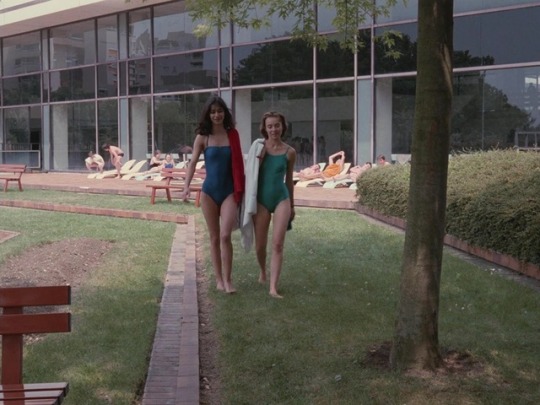


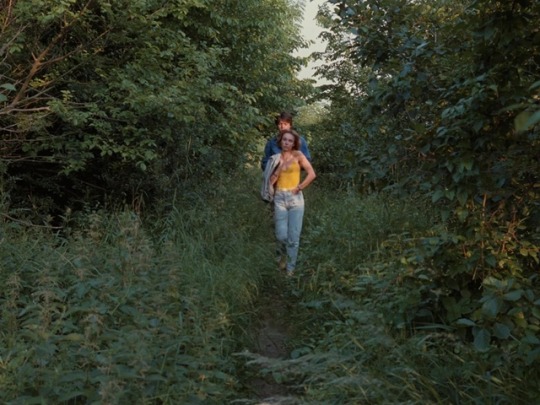

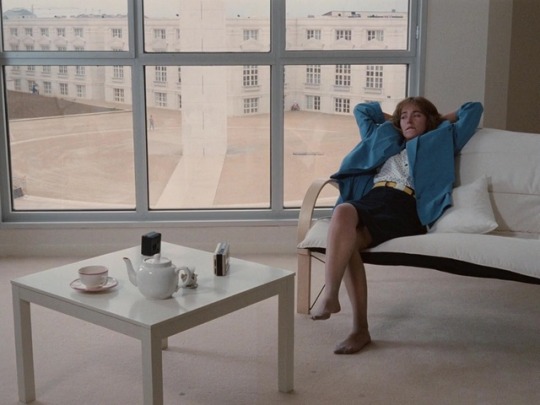
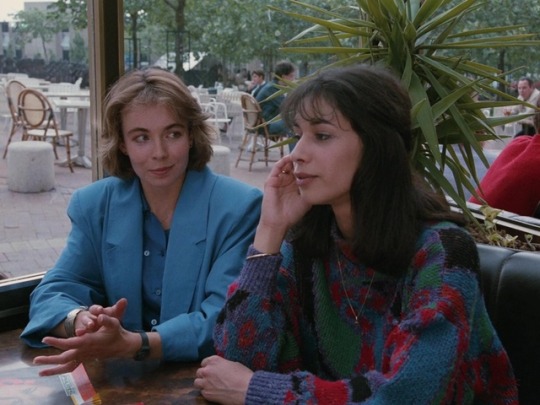
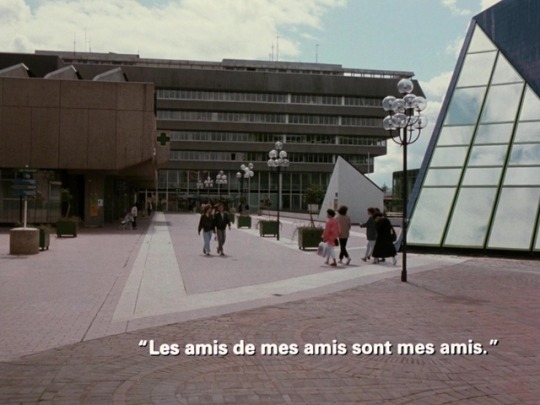
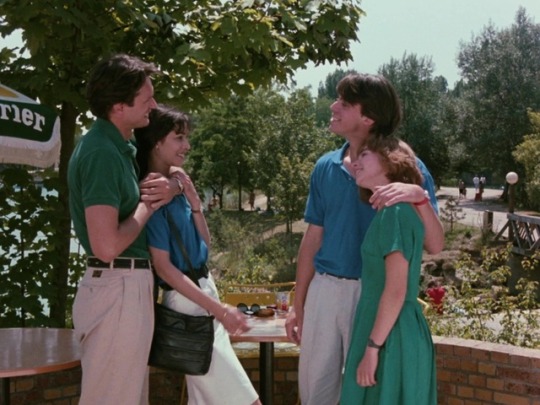
L’ami de mon amie (AKA My Girlfriend’s Boyfriend) | Eric Rohmer | 1987
“The friends of my friends are my friends”
#Eric Rohmer#Rohmer#L’ami de mon amie#My Girlfriend’s Boyfriend#1987#Emmanuelle Chaulet#Sophie Renoir#Eric Viellard#François-Eric Gendron#Teapots
400 notes
·
View notes
Text
15 nominations pour LA DÉESSE DES MOUCHES À FEU au Gala Québec Cinéma 2021

Une autre année pas comme les autres pour le Gala Québec Cinéma, alors que les salles ont longtemps été fermées, ce qui n’a pas empêché une vingtaine de longs métrages de fiction de prendre l’affiche.
Dans la catégorie Meilleur film, on retrouve quatre des films qui ont été le plus vus et appréciés, soit Le club Vinland, La déesse des mouches à feu, My Salinger Year et Nadia Butterly, ainsi que Souterrain, dont la sortie a été maintes fois reportée, mais qui sera le film d’ouverture des Rendez-vous Québec Cinéma cette semaine.

Alignement semblable dans la catégorie Meilleure réalisation, avec Anaïs Barbeau-Lavalette (La déesse des mouches à feu), Sophie Dupuis (Souterrain), Philippe Falardeau (My Salinger Year) et Benoit Pilon (Le club Vinland), mais l’industrie a préféré Daniel Roby (Target Number One) à Pascal Plante (Nadia Butterly).
Dans la catégorie Meilleur scénario, encore là, les gros joueurs sont tous là: Normand Bergeron, Benoit Pilon, Marc Robitaille – Le club Vinland, Sophie Dupuis – Souterrain, Philippe Falardeau – My Salinger Year, Catherine Léger – La déesse des mouches à feu, Daniel Roby – Target Number One.
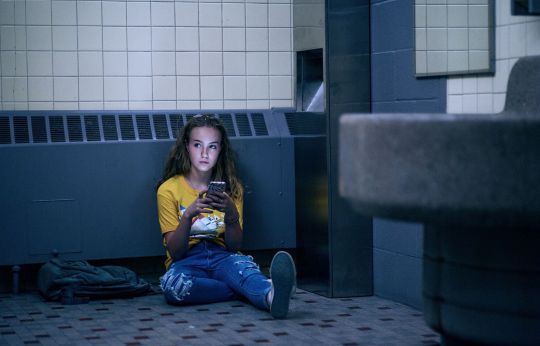
Du côté des actrices, on retrouve Émilie Bierre pour Les nôtres, Marie-Evelyne Lessard pour Jusqu’au déclin, l’actrice américaine Margaret Qualley pour My Salinger Year, Karelle Tremblay pour la coproduction Death of a Ladies’ Man, ainsi que Sarah Sutherland pour Like a House on Fire.
Les acteurs en lice pour l’Iris sont Réal Bossé pour Jusqu’au déclin, Paul Doucet pour Les nôtres, Patrick Hivon pour Mont Foster, Antoine Olivier Pilon pour Target Number One, et Sébastien Ricard pour Le club Vinland.
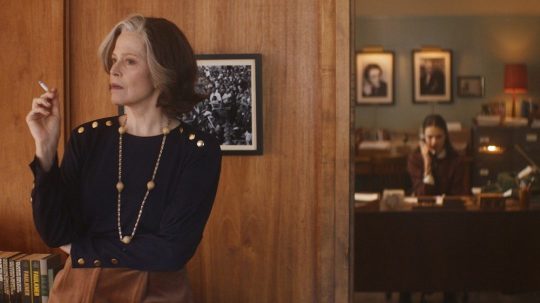
Dans les catégories « rôle de soutien », on retrouve Sophie Desmarais pour Vacarme, Marianne Farley pour Les nôtres, Éléonore Loiselle et Caroline Néron pour La déesse des mouches à feu, et la mythique Sigourney Weaver pour My Salinger Year chez les dames.
Chez ces messieurs, les finalistes sont Normand D’Amour et Robin L’Houmeau pour La déesse des mouches à feu, Rémy Girard pour Le club Vinland, ainsi que James Hyndman et Théodore Pellerin pour Souterrain.

La catégorie Révélation de l’année est l’une des plus intéressantes selon moi, car c’est un aperçu des visages marquants du cinéma des prochaines années. D’ailleurs, Émilie Bierre et Théodore Pellerin, en nomination cette année respectivement pour un premier rôle féminin et un rôle de soutien masculin, font partie des lauréats passés du prix Révélation. Donc, en 2021, les finalistes sont : Kelly Depeault – La déesse des mouches à feu, Jasmine Lemée – Mon cirque à moi, Rosalie Pépin – Vacarme, Joakim Robillard – Souterrain et Arnaud Vachon – Le club Vinland.
Voici le reste des catégories :
MEILLEURE DISTRIBUTION DES RÔLES Iris de la Meilleure distribution des rôles
Deirdre Bowen (Deirdre Bowen Casting) | Heidi Levitt (Heidi Levitt Casting) | Bruno Rosato (Rosato Casting) | Supattra « Pum » Punyadee – Target Number One Marjolaine Lachance (Balustrade casting) – Les Nôtres Marjolaine Lachance (Balustrade casting) – Souterrain Murielle La Ferrière, Marie-Claude Robitaille (Casting Murielle La Ferrière et Marie-Claude Robitaille) – La déesse des mouches à feu Pierre Pageau, Daniel Poisson (Gros Plan) – Le Club Vinland
MEILLEURE DIRECTION ARTISTIQUE Iris de la Meilleure direction artistique
Patrice Bengle, Louise Tremblay – Le Club Vinland Elise de Blois, Claude Tremblay – My Salinger Year Sylvain Lemaitre, Louisa Schabas – Blood Quantum David Pelletier – Mon cirque à moi David Pelletier – Target Number One
MEILLEURE DIRECTION DE LA PHOTOGRAPHIE Iris de la Meilleure direction de la photographie
Jonathan Decoste – La déesse des mouches à feu François Gamache – Le Club Vinland Mathieu Laverdière – Souterrain Tobie Marier Robitaille – La nuit des rois Sara Mishara – My Salinger Year
MEILLEUR SON Iris du Meilleur son
Pierre-Jules Audet, Emmanuel Croset, Michel Tsagli – La nuit des rois Sylvain Bellemare, Paul Col, Bernard Gariépy Strobl, Martyne Morin – La déesse des mouches à feu Sylvain Bellemare, Bernard Gariépy Strobl, François Grenon – Jusqu’au déclin Stéphane Bergeron, Olivier Calvert, Martyne Morin – Nadia, Butterfly Luc Boudrias, Frédéric Cloutier, Patrice LeBlanc – Souterrain
MEILLEUR MONTAGE Iris du Meilleur montage
Aube Foglia – La nuit des rois Michel Grou – Souterrain Stéphane Lafleur – La déesse des mouches à feu Arthur Tarnowski – Jusqu’au déclin Yvann Thibaudeau – Target Number One
MEILLEURS EFFETS VISUELS Iris des Meilleurs effets visuels
Alchimie 24 – Sébastien Chartier, Jean-François « Jafaz » Ferland, Marie-Claude Lafontaine – Jusqu’au déclin Real by Fake – Michael Beaulac, Marie-Hélène Panisset – Target Number One The Workshop – Barbara Rosenstein, Josh Sherrett – Blood Quantum
MEILLEURE MUSIQUE ORIGINALE Iris de la Meilleure musique originale
Olivier Alary – La nuit des rois Patrice Dubuc, Gaëtan Gravel – Souterrain Guido Del Fabbro, Pierre Lapointe – Le Club Vinland Jean-Phi Goncalves, Éloi Painchaud, Jorane Pelletier – Target Number One Martin Léon – My Salinger Year
MEILLEURS COSTUMES Iris des Meilleurs costumes
Caroline Bodson – Souterrain Francesca Chamberland – Le Club Vinland Patricia McNeil, Ann Roth – My Salinger Year Noémi Poulin – Blood Quantum Sharon Scott – Mon cirque à moi
MEILLEUR MAQUILLAGE Iris du Meilleur maquillage
Kathryn Casault – La déesse des mouches à feu Dominique T. Hasbani – Jusqu’au déclin Audray Adam, Sandra Ruel – Souterrain Joan-Patricia Parris, Nancy Ferlatte, Erik Gosselin – Blood Quantum Larysa Chernienko, Natalie Trépanier – Target Number One
MEILLEURE COIFFURE Iris de la Meilleure coiffure
Michelle Côté – My Salinger Year Stéphanie DeFlandre – Mon cirque à moi André Duval – Le Club Vinland Marcelo Padovani – Blood Quantum Johanne Paiement – La déesse des mouches à feu
MEILLEUR FILM DOCUMENTAIRE Iris du Meilleur film documentaire
Errance sans retour – Mélanie Carrier, Olivier Higgins | Mö Films – Mélanie Carrier, Olivier Higgins The Forbidden Reel – Ariel Nasr | Office national du film du Canada – Kat Baulu | Loaded Pictures – Sergeo Kirby | Ariel Nasr Je m’appelle humain – Kim O’Bomsawin | Terre Innue – Andrée-Anne Frenette Tant que j’ai du respir dans le corps – Steve Patry | Les Films de l’Autre – Steve Patry Wintopia – Mira Burt-Wintonick | Office national du film du Canada – Annette Clarke | EyeSteelFilm – Bob Moore
MEILLEURE DIRECTION DE LA PHOTOGRAPHIE | FILM DOCUMENTAIRE Iris de la Meilleure direction de la photographie | Film documentaire
Sarah Baril Gaudet – Passage Hugo Gendron, Michel Valiquette – Je m’appelle humain Olivier Higgins, Renaud Philippe – Errance sans retour Mathieu Perrault Lapierre – The 108 Journey Marianne Ploska – Prière pour une mitaine perdue
MEILLEUR SON | FILM DOCUMENTAIRE Iris du Meilleur son | Film documentaire
Pierre-Jules Audet, Luc Boudrias, Olivier Higgins, Kala Miya – Errance sans retour Stéphane Barsalou, Claude Beaugrand, Julie Innes – Le château Marie-Andrée Cormier, Olivier Germain, Marie-Pierre Grenier – Prière pour une mitaine perdue Benoît Dame, Catherine Van Der Donckt – Jongué, carnet nomade Olivier Germain, Marie-Pierre Grenier – Wintopia
MEILLEUR MONTAGE | FILM DOCUMENTAIRE Iris du Meilleur montage | Film documentaire
Anouk Deschênes – Wintopia Olivier Higgins, Amélie Labrèche – Errance sans retour Annie Jean – Le château Annie Jean – The Forbidden Reel Alexandre Lachance – Je m’appelle humain
MEILLEURE MUSIQUE ORIGINALE | FILM DOCUMENTAIRE Iris de la Meilleure musique originale | Film documentaire
Tom Brunt – Prière pour une mitaine perdue Martin Dumais – Errance sans retour Justin Guzzwell, Tyr Jami, Eric Shaw – Sisters: Dream & Variations Mathieu Perrault Lapierre – The 108 Journey Claude Rivest – Jongué, carnet nomade
MEILLEUR COURT MÉTRAGE | FICTION Iris du Meilleur court métrage | Fiction
Aniksha – Vincent Toi | Vincent Toi, Guillaume Collin Comme une comète – Ariane Louis-Seize | Colonelle films – Fanny Drew, Sarah Mannering Écume – Omar Elhamy | Les Films Rôdeurs – Jonathan Beaulieu-Cyr, Paul Chotel Goodbye Golovin – Mathieu Grimard | Golovin Films – Simon Corriveau-Gagné, Mathieu Grimard Lune – Zoé Pelchat | MéMO Films – Mélanie S. Dubois
MEILLEUR COURT MÉTRAGE | ANIMATION Iris du Meilleur court métrage | Animation
Barcelona de Foc – Theodore Ushev | Theodore Ushev The Fourfold – Alisi Telengut | Alisi Telengut In the Shadow of the Pines – Anne Koizumi | Nava Projects – Sahar Yousefi Moi, Barnabé – Jean-François Lévesque | Office national du film du Canada – Julie Roy La saison des hibiscus – Éléonore Goldberg | Embuscade films – Nicolas Dufour-Laperrière
MEILLEUR COURT MÉTRAGE | DOCUMENTAIRE Iris du Meilleur court métrage | Documentaire
Clebs – Halima Ouardiri | Halima Ouardiri Le frère – Jérémie Battaglia | Les Films Extérieur Jour – Amélie Lambert Bouchard Life of a Dog – Danae Elon, Rosana Matecki | Entre deux mondes Productions – Paul Cadieux, Danae Elon Nitrate – Yousra Benziane | Yousra Benziane Port d’attache – Laurence Lévesque | Elise Bois
PRIX DU PUBLIC
Le Club Vinland – Benoit Pilon | Normand Bergeron, Benoit Pilon, Marc Robitaille | Les Films Opale | Productions Avenida – Chantal Lafleur La déesse des mouches à feu – Anaïs Barbeau-Lavalette | Catherine Léger | Entract Films | Coop Vidéo de Montréal – Luc Vandal Félix et le trésor de Morgäa – Nicola Lemay | Marc Robitaille | Maison 4:3 | 10e Ave Productions – Nancy Florence Savard Flashwood – Jean-Carl Boucher | Jean-Carl Boucher | Entract Films | Go Films – Jean-Carl Boucher, Nicole Robert Jusqu’au déclin – Patrice Laliberté | Charles Dionne, Nicolas Krief, Patrice Laliberté | Netflix | Couronne Nord – Julie Groleau Like a House on Fire – Jesse Noah Klein | Jesse Noah Klein | Entract Films | Colonelle films – Fanny Drew, Sarah Mannering | Woods Entertainment – William Woods Mon cirque à moi – Miryam Bouchard | Miryam Bouchard, Martin Forget | Les Films Séville | Attraction Images – Antonello Cozzolino Mont Foster – Louis Godbout | Louis Godbout | K-Films Amérique | Les Films Primatice – Sébastien Poussard My Salinger Year – Philippe Falardeau | Philippe Falardeau | Métropole Films | micro_scope – Luc Déry, Kim McCraw | Parallel Films – Ruth Coady, Susan Mullen Nadia, Butterfly – Pascal Plante | Pascal Plante | Maison 4:3 | Némésis Films – Dominique Dussault Les Nôtres – Jeanne Leblanc | Judith Baribeau, Jeanne Leblanc, | Maison 4:3 | Slykid & Skykid – Benoit Beaulieu, Marianne Farley Rustic Oracle – Sonia Bonspille Boileau | Sonia Bonspille Boileau | 7th Screen | Nish Media – Jason Brennan Le sang du pélican – Denis Boivin | Denis Boivin | Les Distributions Netima | Productions Dionysos – Denis Boivin Slaxx – Elza Kephart | Patricia Gomez Zlatar, Elza Kephart | Filmoption International | EMAfilms – Anne-Marie Gélinas | Head on the Door Productions – Patricia Gomez Zlatar Target Number One – Daniel Roby | Daniel Roby | Les Films Séville | Caramel Films – Valérie d’Auteuil, André Rouleau We Had It Coming – Paul Barbeau | Paul Barbeau | MK2 Mile End | Reprise Films – Melissa A. Smith, Paul Barbeau
IRIS HOMMAGE
Association coopérative de productions audiovisuelles (ACPAV) Représentée par Marc Daigle et Bernadette Payeur
#gala québec cinéma#la déesse des mouches à feu#target number one#émilie bierre#sigourney weaver#souterrain
9 notes
·
View notes
Video
youtube
ET SI LA MORT N'EXISTAIT PAS - Le film (Partie 1) OÙ EN EST LA SCIENCE SUR LA VIE APRÈS LA MORT.
Partie 2: https://www.youtube.com/watch?v=2Qukb... Abonnez-vous à la chaîne pour découvrir nos prochaines vidéos. Pour suivre nos actualités ou nous soutenir en achetant le DVD : https://www.facebook.com/
ET-SI-LA-MOR... Réalisation: Valérie Seguin et Dominic Bachy Présentation : Aurélie Godefroy – Narration : François-Eric Gendron Ce film présente les études scientifiques et les différents phénomènes observés autour de la mort (EMI, décorporations, contacts avec les défunts, visions des mourants, ...) et réunit pour la première fois un grand nombre de scientifiques réputés sur ce sujet : Le Pr. Steven Laureys, plusieurs médecins et neurologues: Mario Beauregard, Thierry Janssen, Raymond Moody, François Lallier, Pim Van Lommel, Jean-Jacques Charbonier, Constance Yver-Elleaume, Olivier Chambon, etc. Des biologistes et des physiciens: Sylvie Dethiollaz, Philippe Guillemant et Trinh Xuan Thuan. Mais aussi des personnalités notamment l’écrivain Didier van Cauwelaert. Quelles sont leurs conclusions? POUR SUIVRE NOS ACTUALITES: https://www.facebook.com/Et-si-la-mor... Pour comprendre à quel moment s'effectue le PRELEVEMENT D'ORGANES: https://www.youtube.com/watch?v=SZaJu... Si vous souhaitez soutenir les recherches d'ISSNOE sur la délocalisation de la conscience: http://www.issnoe.ch/
1 note
·
View note